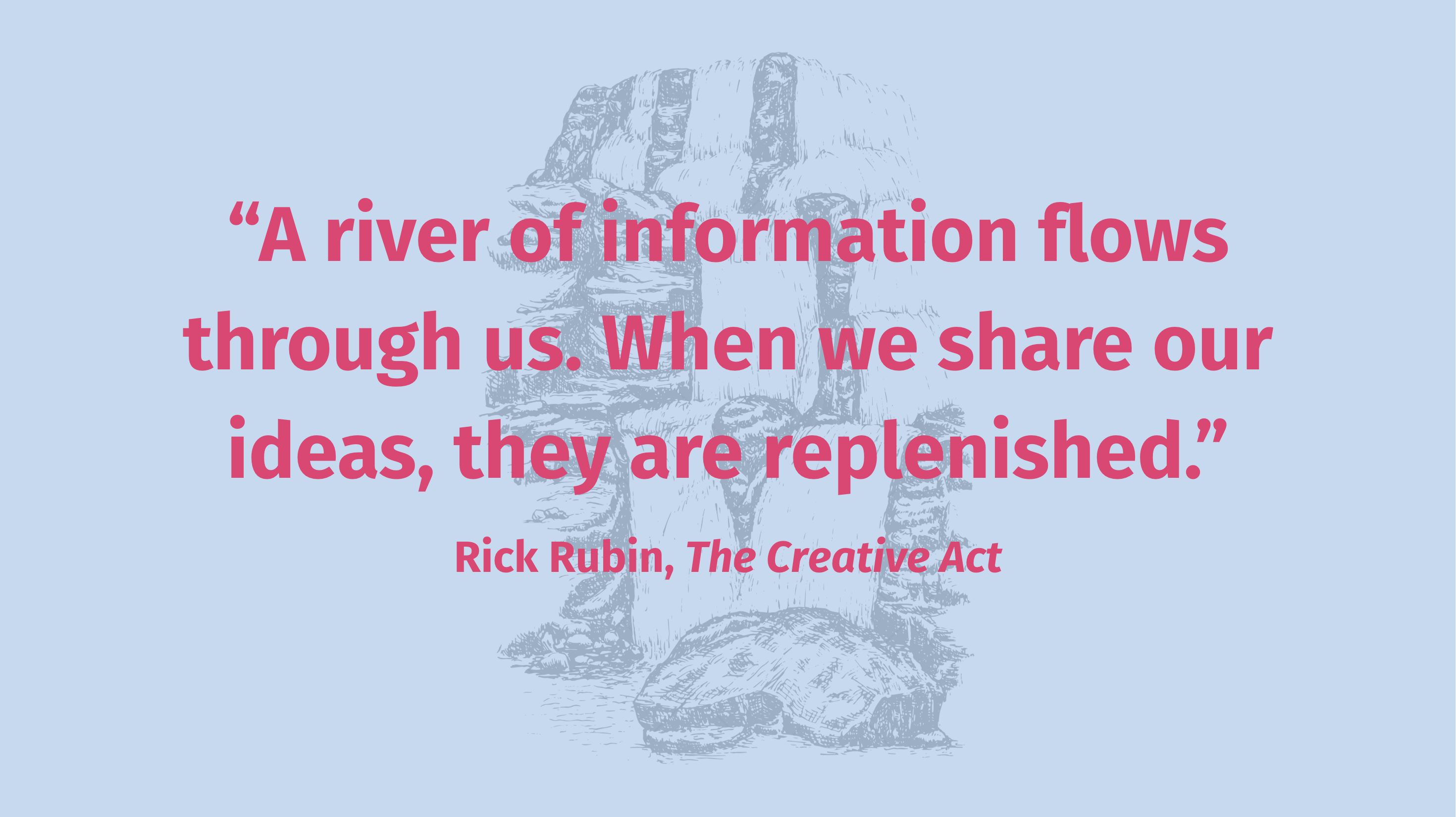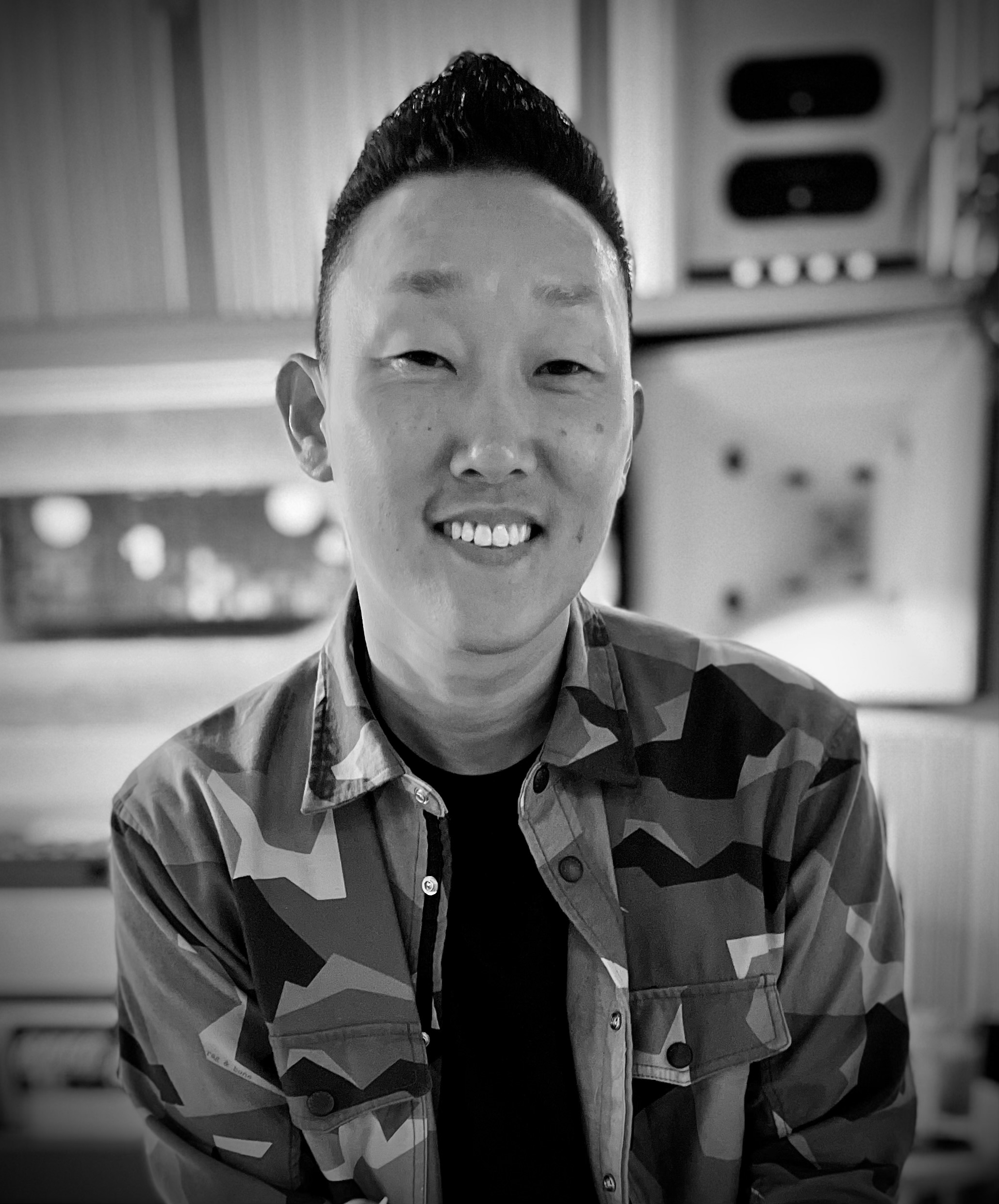Abundance and Flow
Sep 23, 2025There was a time when I held my ideas too tightly. I worried that if I shared them too soon they might be judged or dismissed, or worse, that I might run out of new ones altogether. It felt safer to wait, refine, and guard them closely until I was sure they were ready.
Over time I realized that this approach left me stuck. The more I held back, the less I created. When I finally began sharing more freely I noticed something surprising. Each idea I put into the world seemed to create space for another. Instead of running out I kept finding more.
My instinct to guard ideas did not come from nowhere. It was reinforced by the culture I grew up in professionally. In business school and corporate environments, ideas are often treated like currency. People hold them close, afraid that if they share too soon someone might steal them or dismiss them before they are fully formed. Entire strategies are built around secrecy and protecting intellectual property.
Rick Rubin put it simply: “A river of information flows through us. When we share our ideas, they are replenished.” His words give language to what I felt in practice. Creativity expands when it moves and dries up when it is hoarded. Psychologist Mihály Csíkszentmihályi, who pioneered the concept of flow, showed that when people immerse themselves fully in an activity, they enter a state where creativity renews itself. The act of putting ideas into the world sparks new ones. When creativity is unleashed without censorship, the mind enters a generative, replenishing cycle. It is not that the well runs dry, it is that the well refills as soon as you start drawing from it.
You can see this in the careers of artists like Prince and David Bowie. Prince’s prolific output is often described as effortless, as if he was simply born with limitless talent. The truth is more complex. From a young age he showed exceptional musical ability, but what defined him was discipline. He practiced constantly, mastered dozens of instruments, and controlled every detail of his recordings.
What makes Prince remarkable is that this perfectionism did not slow him down. Many artists polish endlessly and release sparingly. Prince did both, producing music at an extraordinary pace while holding it to his exacting standards. He was always creating, always recording, always moving on to the next song. His genius was not just innate talent, but the combination of high standards with a refusal to stop producing.
David Bowie’s trajectory was quite different. He spent nearly a decade failing with forgettable bands and a solo debut that went nowhere. His breakthrough came only after repeated reinventions. Ziggy Stardust, the Thin White Duke, the Berlin years, the pop icon of the 1980s. Each time he shed an identity, he created space for the next one. He was not simply changing costumes, he was dismantling whole versions of himself to begin again. His abundance was not effortless. It was earned through persistence and the courage to share work even when it risked failure.
Both artists, though operating differently, prove the same truth. Creativity expands when it is shared. For Prince, the lesson is that discipline and perfectionism can fuel prolific output rather than hinder it. For Bowie, the lesson is that abundance can be built through reinvention and release. Together they remind us that the well refills only when you draw from it.

It is worth naming the obvious here, Prince and Bowie were generational talents. They are icons whose level of output can feel out of reach. But the principle they embodied, abundance through release, applies to creators at every level. You can see it in the current generation of YouTubers, streamers, and podcasters. Look at the early content of today’s most successful creators. The production quality was low, the style unpolished, the voice still forming. What carried them forward was not perfection, but volume. They kept putting work into the world, and through that repetition their voice, audience, and mastery emerged.
The difference today is that the world is actually more forgiving of imperfection than in the past. We live in an age that rewards visibility and consistency. An audience will give you the space to evolve if you keep showing up. Abundance is no longer the exception reserved for icons. It is the very condition of being a creator in the digital era.
Entrepreneurs face the same choice. Many are afraid to share their ideas too soon, but the truth is that ideas are plentiful. What really matters is execution. An idea kept hidden is just a passing thought, while an idea shared openly invites feedback, resources, and collaboration that make execution possible. Those who succeed are the ones who trust that more ideas will come, and who focus on building rather than guarding.
You do not need a perfect idea. What matters is a rhythm of creating and putting work into the world. High standards shape quality. Consistency builds momentum. Reinvention keeps you relevant. The river of ideas does not run dry, it flows when you let it move. Trust the flow, put your work into the world, and let the current carry you forward.

